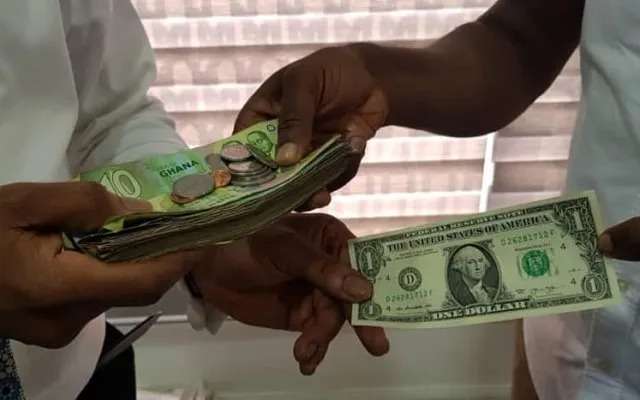Head of price statistics unit at the Ghana Statistical Service (GSS), John Foster Agyaho, has revealed that the issue of black markets in the country creates artificial shortages of dollars within the economy.
According to him, dollars are being moved out of Ghana to neighboring countries which invariably affects the influx of the currency within the Ghanaian market. He indicated that although these countries easily get dollars from Ghana, it is difficult to get same even from their formal market.
Mr Agyaho stated that when the demands exceed supply, Ghana always has the challenge with depreciation, hence the need to break the cycle of black market.
“For me, the good news I see in fighting the black market issue is that we certainly cannot completely eradicate them, but when we minimize their activity [we see real impact]. What they do is that they create artificial shortage, when they get the dollars, they hoard it. So, when the demand is high, the price becomes high, and they come and sell.”
John Foster Agyaho
To address the situation, Mr Agyaho expressed the need for government to boost its fight against illegal peddlers of dollars and monitor the movement of the currency. He noted that although government is currently “not giving dollar support to non-essential import”, more should be done to tackle black market headon.
“So, when you are able to eliminate them, then you can have control over the rate. That is why we have to commend the Bank for what they are doing and they should continue. Once we minimize their activity, we will be able to have some stability at the forex front.”
John Foster Agyaho
Impact of inflation on Ghanaians
Commenting on the seventeen months continuous rise in inflation, Mr Agyaho explained that it doesn’t paint a good picture for the country. He emphasized that the progression shows that inflation is invariably impoverishing Ghanaians because their purchasing power is reducing day in and day out.
“… And if they don’t have corresponding pay rise, then it means they can’t survive; that’s not too good for the economy.”
John Foster Agyaho
The Head of price statistics unit at the GSS underscored that inflation from January till date shows that there is shortage of essential commodities, especially food items in the country. This, he revealed, explains food inflation soaring high in Ghana.
To salvage the situation, Mr Agyaho proposed the resuscitation of domestication in the country by growing crops on the vast farmlands Ghana possesses, as people cannot have three meals a day due to food inflation.
“I was shocked to be told that even goats, we import it from our neighboring countries… So, we need to do something. In fact, we use the phrase ‘grow what we eat and eat what we grow’… So, we need to avert our mind to this and make sure we produce enough. Because it shows that there’s shortages in the market, that’s how come the prices are going up. We don’t have buffer stocks…”
John Foster Agyaho
Describing inflation as a “thief or armed robber”, Mr Agyaho asserted that the impact of the current inflation on Ghanaians is worrying. With this, he urged Ghanaians to live within their means and spend wisely as inflation affects individuals and even regions differently.
“Assuming your salary is GHC1, 000, if inflation is 40.4%, what it basically means is that that thief is stealing GHC404 from you. In essence, you’re left GHC596… So, depending on what you buy, if you decide to go for those luxurious items whose prices are changing rapidly over time, then you are in trouble. So, you need to make some adjustments…”
John Foster Agyaho
READ ALSO: Israeli Experts To Support Ghanaian Entrepreneurs- Israeli Ambassador





















